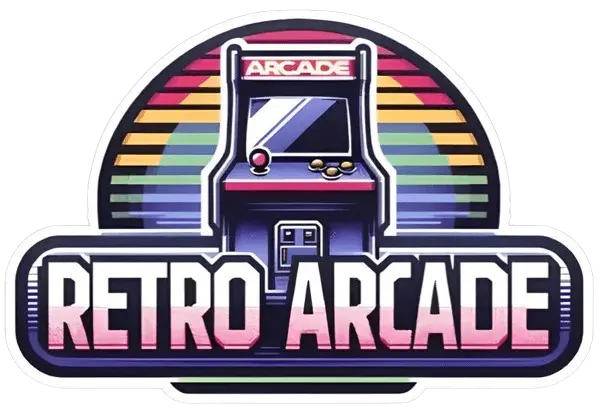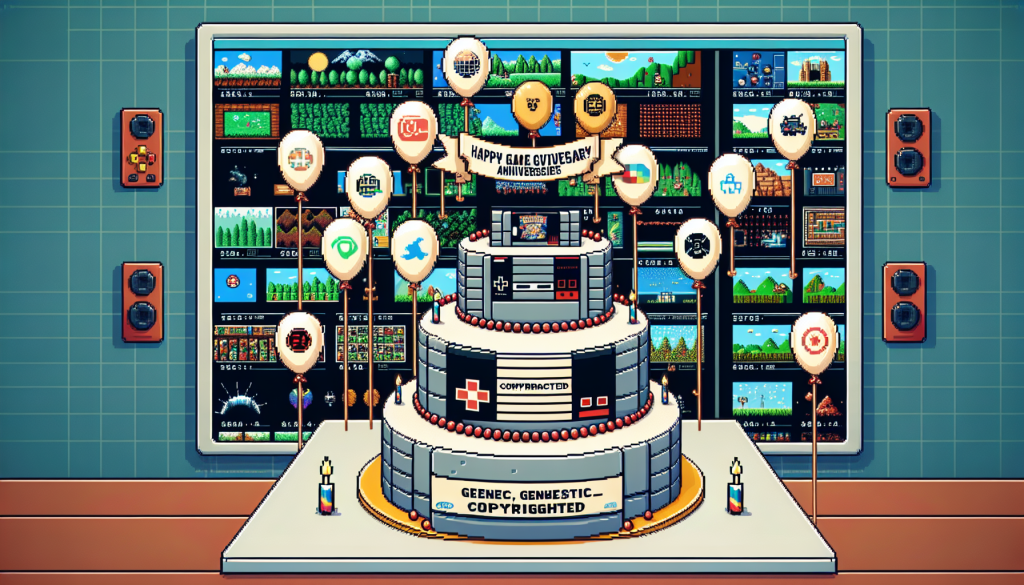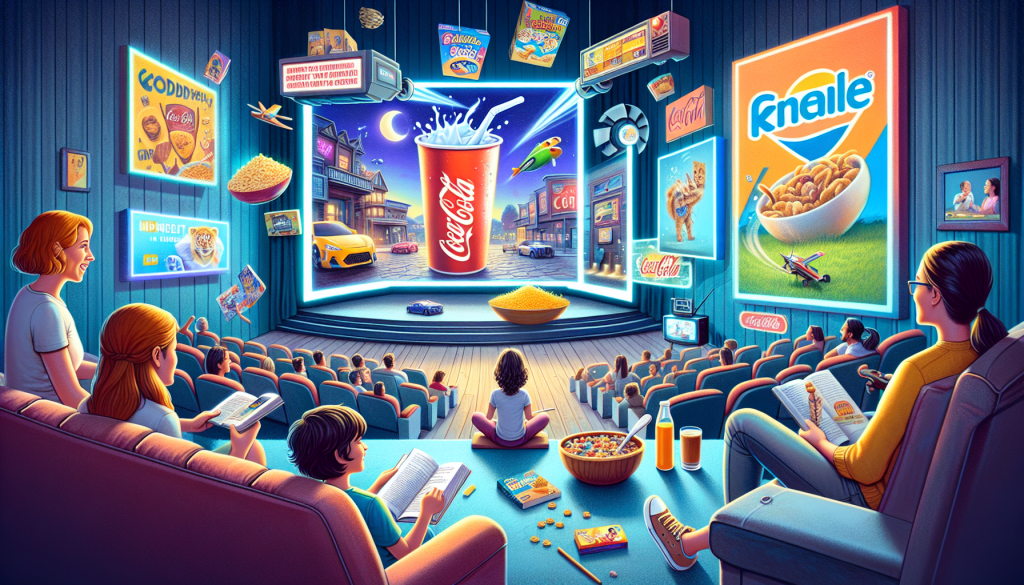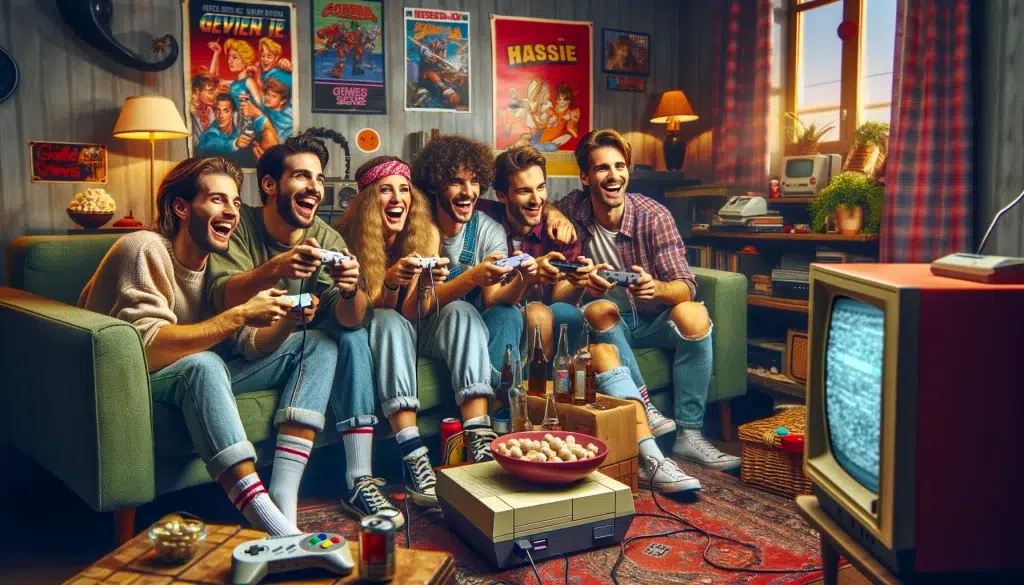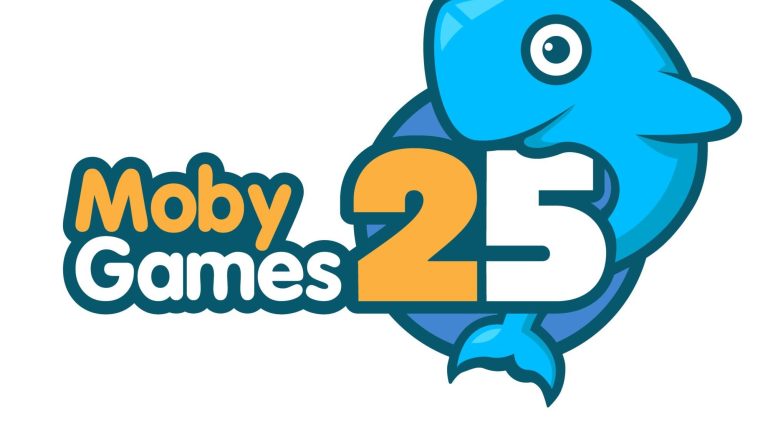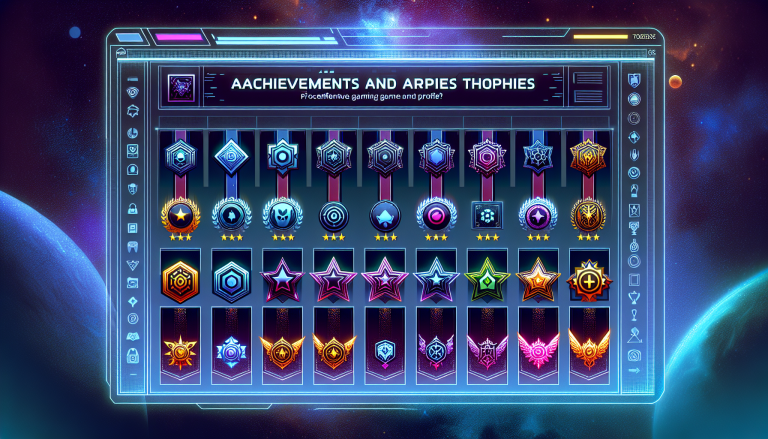The Rise of Microtransactions: Ethical Concerns in Gaming
When it comes to playing video games, we all want a fair and enjoyable experience. But lately, there’s been a controversial trend in the gaming industry that has raised ethical concerns – microtransactions. These small in-game purchases have become increasingly prevalent, and they’re not without their fair share of controversy.
So, what exactly are microtransactions? Well, they are small purchases made within a game that allow players to gain advantages or access additional content. This could be anything from buying a new skin for your character to acquiring powerful weapons or unlocking levels. While microtransactions may seem harmless at first glance, they have sparked a heated debate among gamers and industry experts alike.
One of the main concerns surrounding microtransactions is the impact they have on the gameplay experience. Some argue that these purchases create an unfair advantage for those who are willing to spend more money. It can feel frustrating and demoralizing for players who are constantly outmatched by others who have invested more in microtransactions. This raises questions about the integrity and fairness of the gaming experience.
But it’s not just about fairness – there is also the potential harm that microtransactions can cause to vulnerable players. Children, in particular, may find themselves tempted by the lure of these purchases, leading to excessive spending or addictive behaviors. Game developers and publishers have a responsibility to consider the ethical implications of targeting these vulnerable players and to ensure that appropriate safeguards are in place.
In light of these concerns, it’s important to explore alternative monetization models that can provide a fair and enjoyable gaming experience for all players. Some game developers have taken a different approach by offering cosmetic items or additional content through free updates or expansions. This allows players to enjoy the full gaming experience without feeling pressured to make additional purchases.
Ultimately, the ethical concerns surrounding microtransactions in gaming come down to finding a balance between monetization and player satisfaction. It’s important for game developers and publishers to consider the impact of their business practices on the gaming community as a whole and to prioritize the enjoyment and fairness of the gaming experience.
So, next time you’re playing a game with microtransactions, take a moment to think about the ethical implications. Consider whether the purchases you make are enhancing your experience or creating an unfair advantage. And remember, it’s okay to voice your concerns and support game developers who prioritize ethical practices.
In the end, the gaming industry has the power to shape the future of gaming, and it’s up to us as players to hold them accountable. Let’s strive for a gaming world that is fair, enjoyable, and ethical for all.
Representation Matters: Diversity and Inclusivity in Video Games
Video games have evolved into a powerful form of entertainment that engages and immerses players in captivating digital worlds. They have the potential to transport us to fantastical realms, challenge our skills, and provide hours of enjoyment. However, the gaming industry has faced criticism for its lack of diversity and inclusivity, often failing to adequately represent marginalized groups. In this article, we will explore the importance of diversity and inclusivity in video games and discuss the efforts being made to address this issue.
The Importance of Diversity and Inclusivity
Representation matters, both on and off the screen. When it comes to video games, diverse and inclusive representation is crucial for several reasons. First and foremost, it allows players from all backgrounds to see themselves reflected in the characters and narratives they encounter. This fosters a sense of belonging and validation, enabling players to form deeper connections with the games they play.
Moreover, diverse representation in video games helps challenge stereotypes and break down societal barriers. By featuring characters from different races, ethnicities, genders, sexual orientations, and abilities, games have the power to challenge preconceived notions and promote empathy and understanding among players.
The Lack of Representation in the Gaming Industry
Despite the importance of diversity and inclusivity, the gaming industry has often fallen short in representing marginalized groups. Historically, video games have predominantly featured white, male protagonists, reinforcing a limited and exclusionary perspective. This lack of representation not only alienates players who do not fit into this narrow mold but also perpetuates harmful stereotypes and biases.
Efforts to Address Diversity and Inclusivity
Thankfully, there is a growing recognition within the gaming industry of the need for better representation. Game developers, publishers, and advocacy groups are working towards creating more diverse and inclusive gaming experiences. They are actively seeking out diverse talent, both in front of and behind the scenes, to ensure that different perspectives and voices are included in the creative process.
In recent years, we have seen the emergence of games that prioritize diversity and inclusivity. Titles like “Life is Strange,” “Gone Home,” and “Transistor” explore themes of identity and representation, centering the experiences of LGBTQ+ characters. Games such as “Uncharted: The Lost Legacy” and “Horizon Zero Dawn” feature strong female protagonists, challenging traditional gender roles in gaming narratives.
Promoting Better Representation
While progress is being made, there is still much work to be done to promote better representation in video games. Game developers and publishers can take several steps to ensure that diversity and inclusivity are prioritized. This includes conducting research and consulting with diverse communities to accurately portray their experiences, hiring a diverse team of developers, writers, and artists, and actively seeking out partnerships with underrepresented groups.
Players also play a crucial role in promoting better representation. By supporting and engaging with games that prioritize diversity and inclusivity, players can send a powerful message to the industry. They can also participate in discussions, provide feedback, and advocate for greater representation in gaming spaces.
In conclusion, diversity and inclusivity are important ethical considerations in the gaming industry. By striving for better representation, game developers, publishers, and players can create more inclusive and enriching gaming experiences for everyone. Let’s embrace diversity, challenge stereotypes, and build a gaming community that values and celebrates the unique identities and experiences of all players.
Ethical Considerations in Game Content: Violence and its Impact
Violence in video games has long been a topic of debate and discussion. From the early days of gaming with pixelated graphics to the hyper-realistic visuals of today, the portrayal of violence has raised ethical concerns. In this section, we will delve into the impact of violence in video games and the various ethical considerations that arise.
The Portrayal of Violence in Video Games
Video games often feature violence as a core component of gameplay. Whether it’s shooting enemies, engaging in hand-to-hand combat, or navigating through treacherous battlefields, violence is pervasive in many popular titles. Critics argue that the excessive depiction of violence can desensitize players to real-world violence and promote aggressive behavior.
However, it’s important to note that not all violence in video games is gratuitous or without purpose. Many games use violence as a means to tell a compelling story or explore complex themes. When violence is used in a thoughtful and contextual manner, it can enhance the narrative and player experience.
The Potential Influence of Violent Games on Real-World Behavior
One of the most significant ethical considerations surrounding violence in video games is its potential influence on real-world behavior. Numerous studies have been conducted to determine if there is a link between playing violent games and increased aggression or violent tendencies.
While some studies suggest a correlation between playing violent video games and short-term increases in aggression, it is essential to approach these findings with caution. The relationship between exposure to violent media and real-world behavior is complex and multifaceted, influenced by various individual and environmental factors.
It is crucial not to oversimplify the impact of violent games on players. Many individuals can differentiate between fantasy and reality and engage with violent content without it having a negative effect on their behavior. However, for vulnerable individuals, such as those with aggressive tendencies or underlying mental health issues, exposure to violent games may have a more significant impact.
Age Restrictions and Rating Systems as Ethical Safeguards
To address the potential harm of violent game content, age restrictions and rating systems have been implemented. These systems aim to guide consumers and parents in making informed decisions about the appropriateness of games for different age groups.
Game rating systems, such as the Entertainment Software Rating Board (ESRB), provide valuable information about the content of games, including violence levels. It is crucial for parents and guardians to familiarize themselves with these ratings and use them as a tool to make informed choices for their children.
Game developers also have a responsibility to ensure that their games are appropriately labeled and provide clear content warnings. By doing so, they empower players to make responsible decisions about the games they choose to engage with.
The Responsibility of Game Developers
Game developers play a vital role in addressing the ethical concerns surrounding violence in video games. They have the power to create engaging and immersive experiences while also considering the potential impact on players.
Developers should strive for a balance between entertainment value and potential harm. This can be achieved by incorporating violence in a meaningful way that aligns with the game’s narrative and themes. Additionally, developers can consider alternative mechanics or gameplay options that allow players to engage with the game without resorting to excessive violence.
The Importance of Parental Guidance
While game developers and rating systems have their part to play, parental guidance remains essential in managing access to violent game content. Parents and guardians should actively engage with their children, discussing the content and themes of the games they play.
Setting limits and boundaries, based on age appropriateness and individual maturity levels, can help mitigate any potential negative impacts of violent games. By maintaining open lines of communication, parents can address any concerns or questions their children may have, fostering a safe and responsible gaming environment.
Online Harassment and Toxicity: Ethics in Multiplayer Gaming
Online gaming is a fantastic way to connect with friends, challenge opponents from around the world, and immerse ourselves in virtual worlds. However, it comes with a dark side – the prevalence of online harassment and toxicity. In this article, we’ll explore the ethical concerns surrounding this issue and discuss the responsibilities of game developers, publishers, and players in creating a safe and inclusive gaming environment.
The Prevalence of Online Harassment and Toxicity
Sadly, online harassment and toxic behavior are all too common in multiplayer gaming communities. From derogatory comments to personal attacks, players can face a barrage of negativity that can severely impact their gaming experience and mental well-being. It’s disheartening to see how some individuals use the anonymity of online gaming to engage in harmful behavior.
The Responsibility of Game Developers and Publishers
Game developers and publishers have a crucial role to play in addressing online harassment and toxicity. They must prioritize the creation of safe and inclusive spaces for players to enjoy their games. This includes implementing robust reporting systems, community guidelines, and moderation tools to swiftly address and punish those who engage in toxic behavior. It’s also essential for game developers to foster a positive and respectful culture within their communities. By actively promoting inclusivity and setting the tone through their game’s design, narrative, and communication channels, developers can encourage players to treat each other with kindness and respect.
The Impact of Online Harassment
Online harassment can have severe consequences for the victims. It can lead to increased levels of stress, anxiety, and even depression. It may also deter players from fully engaging with multiplayer games or participating in online communities, ultimately limiting their enjoyment of the gaming experience. Furthermore, toxic behavior can also discourage new players from joining the gaming community. When potential gamers witness negative interactions, they may be hesitant to immerse themselves in a virtual world where they feel unwelcome or unsafe.
Strategies to Combat Online Toxicity
Combating online toxicity requires a collective effort from game developers, publishers, and players. Here are some strategies that can help create a safer and more inclusive gaming environment:
- Reporting Systems: Implement robust reporting systems that allow players to report toxic behavior easily. Make sure these reports are taken seriously and promptly acted upon.
- Community Guidelines: Clearly define and enforce community guidelines that explicitly state the expectations for player behavior. These guidelines should promote inclusivity, respect, and discourage any form of harassment.
- Moderation: Employ experienced moderators or community managers who can monitor and intervene in toxic situations. They can warn, mute, or temporarily ban players who engage in harmful behavior.
- Education and Awareness: Raise awareness about the impact of online harassment and toxic behavior through in-game messaging, social media campaigns, or even educational resources. Encourage players to empathize with one another and understand the consequences of their actions.
- Positive Role Modeling: Celebrate positive behavior and highlight players who contribute to a welcoming and respectful gaming environment. This can inspire others to follow suit and create a virtuous cycle of kindness and respect.
Our Responsibility
As players, we also have a responsibility to contribute to a positive gaming environment. Treat others with kindness, respect, and empathy. Stand up against harassment and report any incidents you witness. By actively participating in the creation of a welcoming and inclusive community, we can make a significant difference in the gaming landscape. In conclusion, online harassment and toxicity are pressing ethical concerns in multiplayer gaming. Game developers, publishers, and players must work together to address this issue and create a safe gaming environment. By implementing strategies to combat toxic behavior and promoting positive interactions, we can foster a community that values inclusivity and respect. Let’s make multiplayer gaming a space where everyone feels welcome and can enjoy the experience to the fullest.
Game Addiction and Responsible Gaming
Video games have become an increasingly popular form of entertainment, providing hours of fun and immersive experiences. However, with this popularity comes the need to address the issue of game addiction and promote responsible gaming habits. While gaming can be a healthy and enjoyable hobby, it is essential to recognize and address the potential risks and ethical implications that come with excessive gaming.
The Ethical Implications
Game addiction raises ethical concerns as it can negatively impact various aspects of an individual’s life, including mental and physical health, academic or professional performance, and relationships. Game developers have a responsibility to ensure that their games do not exploit addictive tendencies but instead provide a balanced and enriching experience. It is crucial to strike a balance between creating engaging gameplay and safeguarding players from harmful addiction.
The Role of Players
As players, we are also responsible for practicing responsible gaming habits. This means being aware of the amount of time and energy we invest in gaming and maintaining a healthy balance with other aspects of our lives. It is important to prioritize our well-being, including physical activity, social interactions, and other hobbies or interests. By practicing responsible gaming, we can enjoy the benefits of gaming without falling into the trap of addiction.
Industry Efforts
The gaming industry has recognized the importance of promoting responsible gaming and has taken steps to address game addiction. Age ratings and content warnings help inform players and parents about the suitability of a game for different age groups. Additionally, many games now include features such as time tracking and reminders to take breaks, encouraging players to maintain a healthy gaming routine.
Game developers and publishers also collaborate with mental health organizations and support initiatives that provide resources for those struggling with game addiction. By raising awareness and providing access to help, the industry is actively working towards creating a safer and more responsible gaming environment.
Potential Solutions
Preventing and addressing game addiction requires a multi-faceted approach. Education plays a significant role in promoting responsible gaming habits. By providing information about the signs of addiction and the potential consequences, players can make informed decisions and seek help if necessary.
Support resources, such as helplines and counseling services, are crucial for individuals struggling with game addiction. Game developers and industry organizations can collaborate with mental health professionals to develop effective support systems and ensure that those in need have access to the help they require.
